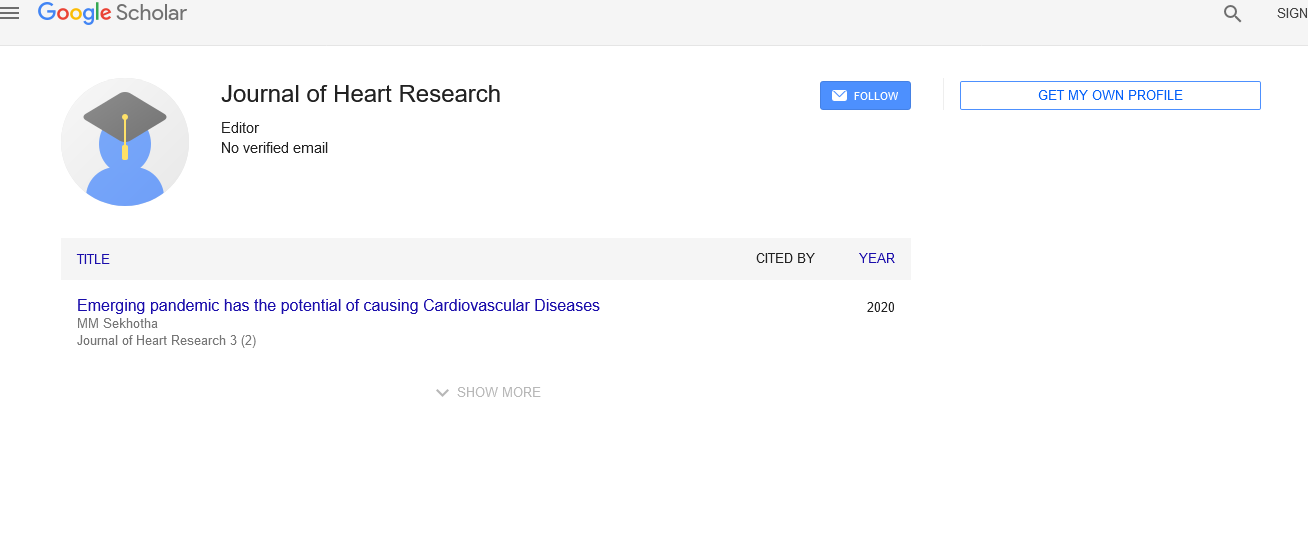
Sign up for email alert when new content gets added: Sign up
Abstract
Increased serum calcification propensity in myocardial infarction suggests a pathophysiological role beyond traditional cardiovascular risk factors
Author(s): Shurti Mehra*Increased serum calcification propensity has recently emerged as a significant factor in cardiovascular research, particularly in the context of Myocardial Infarction (MI). This study explores the association between elevated serum calcification propensity and MI, highlighting its potential role in the disease's pathophysiology beyond traditional cardiovascular risk factors. Traditional risk factors such as hypertension, hyperlipidemia, and diabetes are well-established in MI development, but emerging evidence suggests that serum calcification propensity may provide additional insights into MI risk. Elevated serum calcification propensity could reflect an increased tendency for vascular calcification, which may contribute to plaque instability and rupture, leading to acute thrombotic events. This study underscores the need for further research to elucidate the mechanisms linking serum calcification propensity to MI and to assess its potential as a novel biomarker for cardiovascular risk assessment and therapeutic targeting. Understanding this relationship could offer new perspectives on MI prevention and management, advancing strategies beyond conventional risk factor modification.
Full-Text | PDF




